America – Tax-Free Zone Video Course
Original price was: $695.00.$68.00Current price is: $68.00.
Product Delivery – You will receive Content Access Via Email.
Email – Kickmarketers@gmail.com
Description
America – Tax-Free Zone Video Course
Price: $695
Sale Page: http://www.internationalman.com/pocket-enormous-tax-savings-in-puerto-rico
I’m talking about legally eliminating all taxation on the most common forms of investment income. Or running a business with 4% or less taxes on profits.
Never before have such incredible tax incentives been available to Americans so easily.
Dear Reader,
I did it.
I recently moved down to the Island of Enchantment with my family.
Not that they mind… it’s been sunny almost every day with a cool ocean breeze, and temperatures in the 70s and 80s.
Sure beats the freezing cold and snowy weather.
Our big workout down here is taking a swim in the pool or the ocean versus digging out of huge snow piles.
But it wasn’t just the sunny skies, year-round warm weather, and beautiful ocean beaches that drew us to Puerto Rico; it was the incredible tax breaks that are available here that are not available anywhere else in the world for would-be former US residents.
You see, to spur job growth and economic activity in general, the Commonwealth of Puerto Rico introduced these enormous tax incentives for incoming residents and service businesses.
Specifically, for Puerto Rican residents and businesses that qualify—mostly expatriates from the US mainland or their enterprises—the recently enacted Act 22 and Act 20 provide for a zero tax rate on capital gains and certain interest and dividends earned by individuals.
And, if you a run a business that exports services like I’m doing here, they also provide for low single-digit tax rates on your profits. No double tax taxation, no income tax on profits, just a top 4% withholding on distributions to owners (and no corporate tax on profits sent to your partners outside of Puerto Rico, either).
According to Bloomberg, “The marginal tax rate for affluent New Yorkers can exceed 50 percent on ordinary income.”
By relocating to Puerto Rico, enormous tax savings can be achieved.
For certain investors, that could mean eliminating taxation completely. For the right businesses, it could mean tax rates of just 4% on earnings.
Anyone who relocates to Puerto Rico can apply for the tax shelter of Acts 22 and 20—including mainland US citizens, who cannot find similar benefits anywhere else in the world without significant complication and expense.
Now, I know it sounds too good to be true.
But I’ve done a comprehensive boots-on-the-ground investigation and found that the tax advantages are real, and that for many Americans they are a huge opportunity that could truly be life-changing.
Because, until now, there was no easy, legal way to escape US taxes… besides death or renouncing your US citizenship.
That’s because the US is the only country in the world that effectively taxes its citizens and former residents no matter where they live and make their money.
Sure, there are plenty of low-tax countries in the world. Singapore, the Cayman Islands, and Dubai come to mind—and chances are you’ve heard of them all for that reason.
These little countries have turned into financial and services meccas because any Londoner or Parisian or Canadian could head there and run a business or manage their investments in a much more tax-friendly climate.
America, not so much. While they do allow a small exemption for a minimal amount of income, with lots of rules, generally Americans are taxed no matter where they go. Especially the successful ones.
Many believe it’s these suffocating and unfavorable tax policies plaguing US citizens that are responsible for the record number of Americans saying goodbye permanently to Uncle Sam by renouncing their citizenship and heading to places like Singapore.
In fact, Forbes is reporting that the number of US citizens and permanent residents who gave up their citizenship soared 221% last year alone.
That’s what Facebook cofounder Eduardo Savarin did when he headed for Singapore.
But the penalty for giving up your citizenship is high if you’re wealthy—thanks to the enormous US exit tax.
The US worries about this trend, of course.
Jurisdictions like Puerto Rico want in on it to boost their own economies, like Hong Kong or Macau or Belize have. Because of those dual forces, there is now a much easier way to seek less-taxed shores, one of which is rooted in decades of US law and support and unlikely to change on a whim.
That’s where Puerto Rico shines brightly above all others…
By becoming a bona fide resident of Puerto Rico, you can escape paying high US taxes legally, still retain your American citizenship, and avoid paying the hefty exit tax.
You see, since Puerto Rico is an unincorporated territory (commonwealth) of the US, it’s allowed to have a special tax arrangement.
Namely, legal residents of Puerto Rico who earn their income in Puerto Rico do not pay US federal income taxes.
All Puerto Ricans are already US citizens, and since it is a commonwealth of the US, Americans are generally free to stay on the island without restriction and do not even need a passport to travel there. It’s like visiting another state for most purposes, though one that predominately speaks Spanish.
But speaking Spanish is not a necessity to move there… you don’t need to learn Spanish to get around Puerto Rico. Many expats and relocated mainland Americans only speak English and get along just fine.
While mainland Americans who become Puerto Rican residents do not have to pay US federal income taxes on income earned on the island, they still have to pay local Puerto Rican taxes.
Traditionally, those taxes have been very close to those back home, so the island’s unique tax status didn’t net much benefit.
For decades, the US Virgin Islands have offered tax incentives to attract investors to the islands—with programs supported by the US government since the 1950s. However, these programs were complex and imposed huge regulatory burdens. And those islands are much smaller and with much less of the modern infrastructure Puerto Rico offers.
Over the last few decades, Puerto Rico caught on to the enormous benefits such tax incentives brought to its neighbors in the Caribbean and Central America, and provided incentives to draw big manufacturers like Pfizer, Bard, and Praxair to the island—all have facilities within a stone’s throw of my chosen home—even Microsoft has a presence here.
But, they were losing out on less environmentally impactful and better-paying jobs in finance, call centers, and dozens of other service businesses that headed elsewhere.
To catch up, Puerto Rico recently slashed its taxes on capital gains, dividends, and interest to ZERO for new residents who apply.
This means that mainland Americans who move to Puerto Rico can eliminate taxation on investments they make on the island or in the markets. This is a huge benefit to stock traders, venture capitalists, M&A practitioners, or anyone who gets bitten by capital gains tax at the end of the year. This is what “Act 22” accomplishes.
On top of that, they’ve launched a set of incentives to draw service businesses down to the island. Everything from asset managers to marketers and public relations professionals. Computer programmers. Graphic designers. Or writers and researchers, like me.
Under this law—Act 20—any service business that can be operated in Puerto Rico for clients outside of Puerto Rico can apply for special tax treatment, including a host of benefits of which the most important is a tax rate of 4% or lower.
This is so small it’s almost a rounding error in comparison to the combined US federal, state, and sometimes city income taxes that you would pay on the mainland US.
For example, an investment manager based in Puerto Rico who performs services for US-based clients would be eligible for the lower income tax rate.
The tax benefits are so enormous that I brought my own family here to take advantage of them.
I would not have made the move and uprooted my family if I didn t think the tax advantages were real and here to stay.
With the extra income I make by residing in Puerto Rico, I’ll be able to provide my family with a better quality of life and still keep our US citizenship. In Puerto Rico you’ll enjoy a low cost of living compared to most island locations (I even still get free Prime shipping from Amazon), excellent health care, modern telecommunication services like high-speed Internet that’s faster than I could ever get in my home in Vermont… not to mention tropical weather, beautiful beaches, majestic mountains, good food, and a thriving arts scene.
On top of that, the business tax savings here and the great pool of educated labor allow me to reinvest more of my income into growing my business. And when I do turn a profit, I keep what I’ve risked so much and worked so hard to earn.
All on a tropical island in the Caribbean that’s 100 miles long and 35 miles wide… about three times the size of Rhode Island.
Now like everywhere else, of course, Puerto Rico has its negatives. Make a decision like mine and inevitably you will hear something about the crime. But to extrapolate the bad statistics to the entire area is a mistake. It would be like not moving to Michigan’s beautiful lakefront because of crime in Detroit.
Like any state with a dense metropolitan area, there’s crime in some areas. If you steer clear of those areas or take the same precautions you would in any big city around the world, you’ll be fine.
So if you’re an individual who makes most of your money from capital gains, a service provider who can provide services from Puerto Rico to your non-Puerto Rican clients, or a business owner with operations outside of Puerto Rico… then you could benefit substantially from very significant income tax savings with a move to the Island of Enchantment.
That’s why I was eager to make the move to Puerto Rico myself. And after traveling the island, meeting with real estate agents, lawyers, government reps, accountants, et al., I’m more convinced than ever that the tax benefits are enormous for those that qualify.
But there are some hurdles you need to be aware of. This is not a decision to be made on a whim; it requires a little bit of preparation and planning.
The good part is that my excellent colleagues at Casey Research and International Man who have been helping individuals make the most of their financial freedom for four decades now and I have done almost all the hard work for you.
We’ve put together the definitive, authoritative, comprehensive guidebook to the tax advantages of residing in Puerto Rico.
This guidebook, How to Legally Remove Yourself from the U.S. Tax Code, without Leaving America, thoroughly covers the unique opportunity for Americans that Puerto Rico’s Acts 20 and 22 offer.
We’ve put in hundreds of hours of research, with our sandals on the beach, to make this report a reality. It has been circulated for comments by attorneys and accountants in the US and in Puerto Rico to ensure the advice is as accurate and straightforward as possible.
In fact, one of Puerto Rico’s most prominent law offices, Pietrantoni Méndez & Alvarez (PMA) LLC, has lent its seal of approval to the report after thoroughly reviewing it. You know how much work it takes to get a lawyer to commit to anything.
If you’re considering the possibility of relocating to take advantage of these tax savings, our Puerto Rico guide is a must have.
I can tell you from experience, it will save you thousands in legal expenses by helping you understand how you and/or your business can qualify for these life-changing benefits.
Start here before you sit down with your own accountant or attorney. Or find out how, if you’re only taking advantage of Act 22, you can easily apply yourself.
The guide is packed with actionable information, including a multitude of professional resources (lawyers, accountants, real estate firms, etc.) that we have personally vetted.
We believe this guidebook is so important, especially right now, that we’ve arranged a way for you to get a free copy for a limited time by clicking here.
Inside, you’ll receive exclusive guidance available nowhere else, including…
- How individual Americans can totally eliminate all taxation on certain types of investment income (capital gains, dividend, and interest income).
- How service businesses (like consultants, software development, accountants, financial planners, asset managers, etc.) can reduce their top corporate tax rate to 4%, a pittance when compared to the top corporate rate of 40% in the mainland US.
- The genesis of the new tax incentives in Puerto Rico and why we believe they are here to stay.
- How to apply for these tax benefits, including the written and unwritten rules you have to follow.
- How to qualify for many of these life-changing benefits without an expensive visit to a law office.
- Our top personal resources available to help you find a home, get tax help, structure businesses, network with expats, and more.
- The answers to a list of frequently asked questions about moving and living in Puerto Rico, including banking in Puerto Rico, the best places for expats to live (from a modest budget to more luxurious options), and how to navigate a real estate transaction.
As I mentioned above, I have personally made the move to Puerto Rico to take advantage of the huge tax savings that as an American I cannot obtain anywhere else in the world.
So we’re not just reporting from theory here, but are actually on the ground in Puerto Rico gathering the facts on the rules and regulations that make these tax savings work to your advantage.
That’s why we’re excited to make available our guidebook, How to Legally Remove Yourself from the U.S. Tax Code, without Leaving America, to you today for free for a limited time. So that you can achieve substantially lower taxes—and a dramatically improved lifestyle—without leaving America behind.

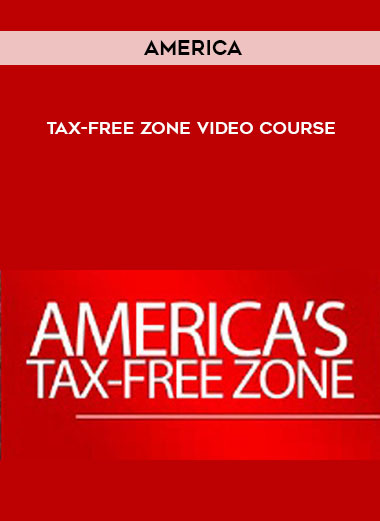
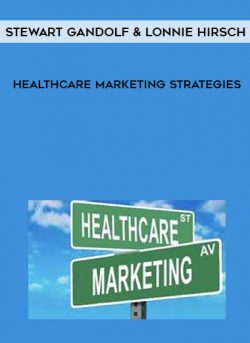

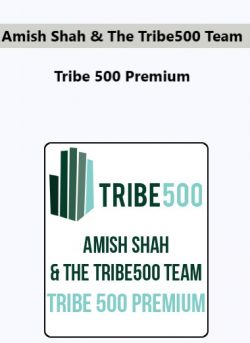




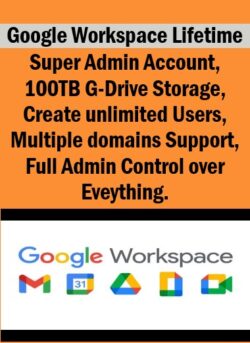

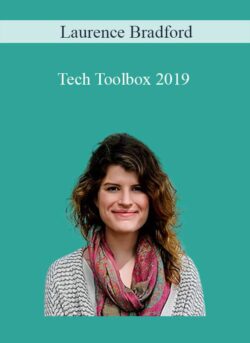
![[Download Now] Rob Pene - Get More Clients Video Analysis for Leads From Cold Email](https://kickmarketers.com/wp-content/uploads/2024/01/download-now-rob-pene-get-more-clients-video-analysis-for-leads-from-cold-250x297.png)
Nicole Young (verified owner) –
The content was high-quality and well-organized.
Austin Russell (verified owner) –
The examples provided were very helpful in understanding the concepts.
Emily Russell (verified owner) –
Good quality.
Mark Diaz (verified owner) –
I appreciated the real-world applications included in the course.
Andrew Morgan (verified owner) –
The content was high-quality and well-organized.